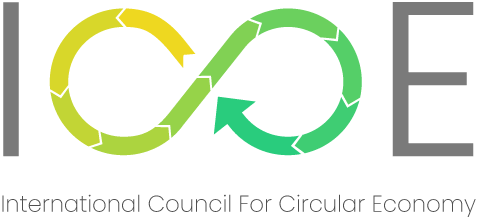ACHIEVING CIRCULAR ECONOMY AND SUSTAINABILITY THROUGH GLOBAL BEST PRACTICES IN ELECTRONICS SECTOR
Global resource consumption will outpace Earth’s replenishment capacity by 2050, with materials like biomass, fossil fuels, metals, and minerals set to double by 2060. This surge in consumption is also projected to increase waste generation by 70% by 2050, contributing significantly to pollution and 40% of global greenhouse gas emissions. For instance, producing one tonne of laptops can emit up to 10 tonnes of CO2, emphasizing the importance of resource-efficient production and recycled inputs.
The United Nations introduced Sustainable Development Goals (SDGs) in 2015 to address these challenges. India has also committed to achieve SDGs like Responsible Consumption and Production, Sustainable Cities and Communities, and Industry, Innovation and Infrastructure align with the principles of the circular economy (CE). Many electronics manufacturers are already aligning their strategies with specific SDGs.
Transitioning to a CE can reduce reliance on virgin materials and boost resource productivity. As India strives for self-reliance (Atmanirbhar Bharat), the sustainable growth models are imperative to benefit citizen, the environment, and the economy. This requires increased investment in skills, sectors, products, business models, digitalization, and technologies that promote long-term prosperity and environmental health.
CE realization in the electronics sector necessitates in creating a system where electronic products are designed, used, and recycled in a way that minimizes waste and maximizes resource efficiency. The CE principle in e-waste management also demands green design, sustainable manufacturing, circular business models in order to reduce e-waste generation, resource recovery, and digital tools for transparency and stakeholder engagement. These innovative approaches can help shift towards a more sustainable and resource-efficient future1.
India faces a significant e-waste challenge, generating 4.17 million tonnes in 2022 ranking third globally. However, the collection and recycling of e-waste in India remain insufficient. A circular economy approach demands extended life of products till their usability, thereafter, responsible recycling using global best practices to recover precious materials, once further use is impossible. India should also adopt one of the global best practices, like R2 Standards in refurbishing and recycling ecosystem. R2 standard offers a key solution for environmentally friendly electronics recycling. This article makes an attempt to examine the core features and benefits of this standard safety system, steps for obtaining R2 certification and reasons to align with certified electronics recyclers. As the problem of electronic waste grows, the R2 certification will be imperative to measures the outcome of the achieving CE principles in EEE sector2.
